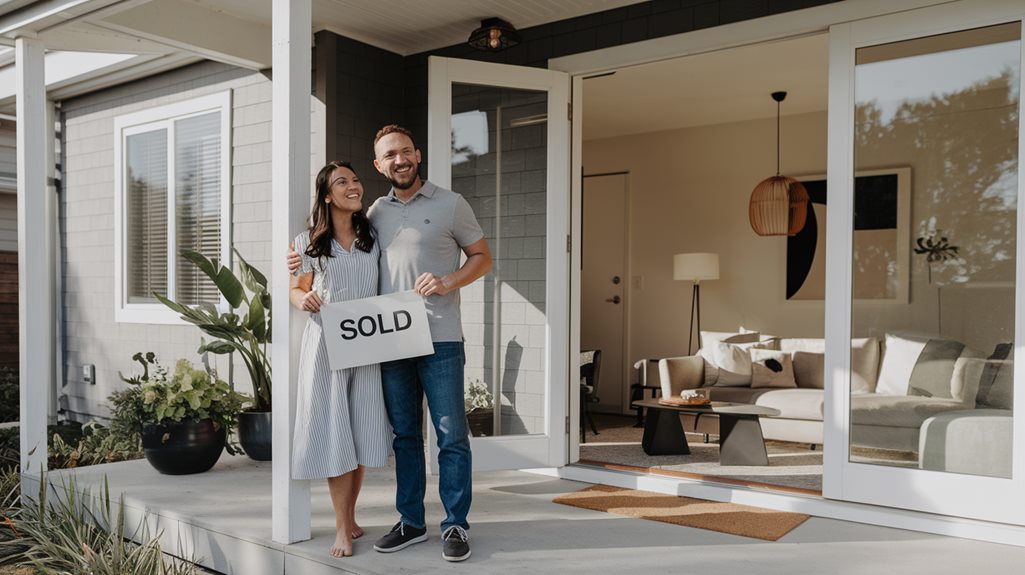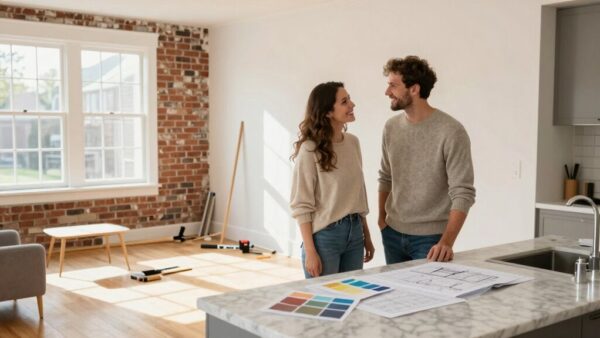Buying your first house is a big and exciting step! Before you start, take a look at your money and think about what kind of loan you want. It's really important to get pre-approved for a loan. This helps you know how much you can spend and shows sellers that you're serious about buying.
Next, think about what you need in a house. Make a list of the most important things, like how many bedrooms or how big the yard should be. Then, look at different neighborhoods to find one that feels right for you and matches your dreams for the future.
Going to open houses is a great way to see what's out there. Don't forget to check the house carefully before deciding to buy it.
When you make an offer, make sure it's a good one based on what's happening in the market. Finally, look over all the paperwork closely to make sure everything is correct.
With these tips, you'll be on your way to finding your perfect home!
Ready to start building equity in your own Michigan home? Get your personalized home loan quote today.
Evaluate Your Financial Situation
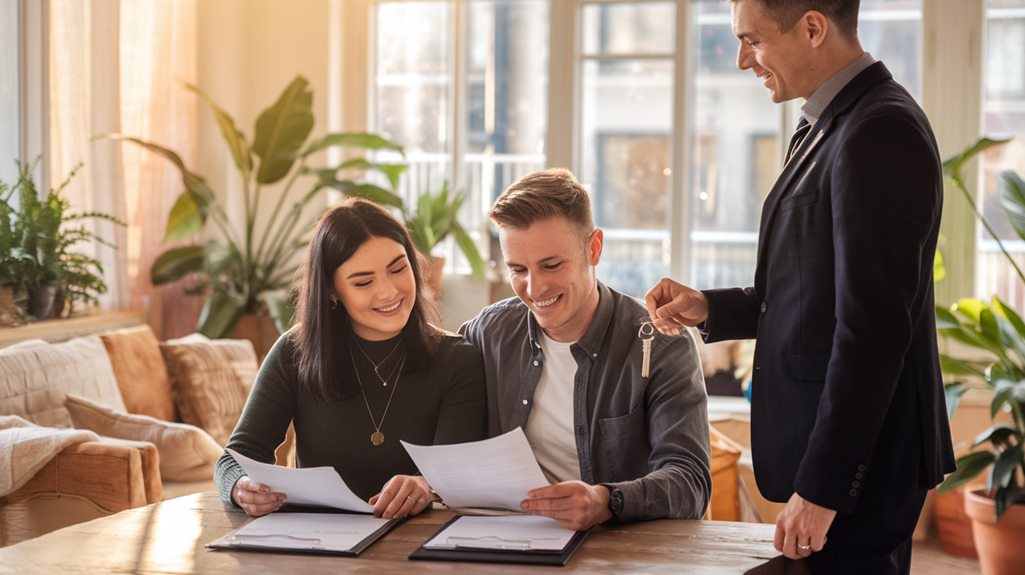
Do you know how much money you have and spend? Start by making a simple budget. This will help you see how much you earn and where your money goes.
Write down everything you buy to find ways to save money. Try to save some money for emergencies too.
Your credit score is important. Check it often and fix any problems by paying off your debts.
Less debt can help you save more money. When you understand your money better, you can feel more confident about buying a home.
Michigan residents, unlock the door to your new home. Request your home loan quote from Treeside Financial today.
Understand Mortgage Options
Now that you've looked at your money situation, it's time to think about the different types of mortgages you can get.
If you want to keep your payments the same each month, a fixed-rate mortgage might be a good choice. But if you think your money needs might change, an adjustable-rate mortgage could work better for you.
Some loans from the government can help you pay less upfront, while private lenders might give you more choices for how to pay it back.
It's also important to know how interest rates can change your monthly payments and if you'll need mortgage insurance.
You might even want to think about refinancing later to help with your finances.
You might be closer to buying your home than you think
Take our 2-minute home buyer readiness quiz to see how prepared you really are – no credit check required.

Remember to check closing costs too, because they can change how much money you need at first.
Understanding all these things will help you pick a mortgage that fits your money goals and helps you feel at home in your new neighborhood.
Get Pre-Approved for a Loan
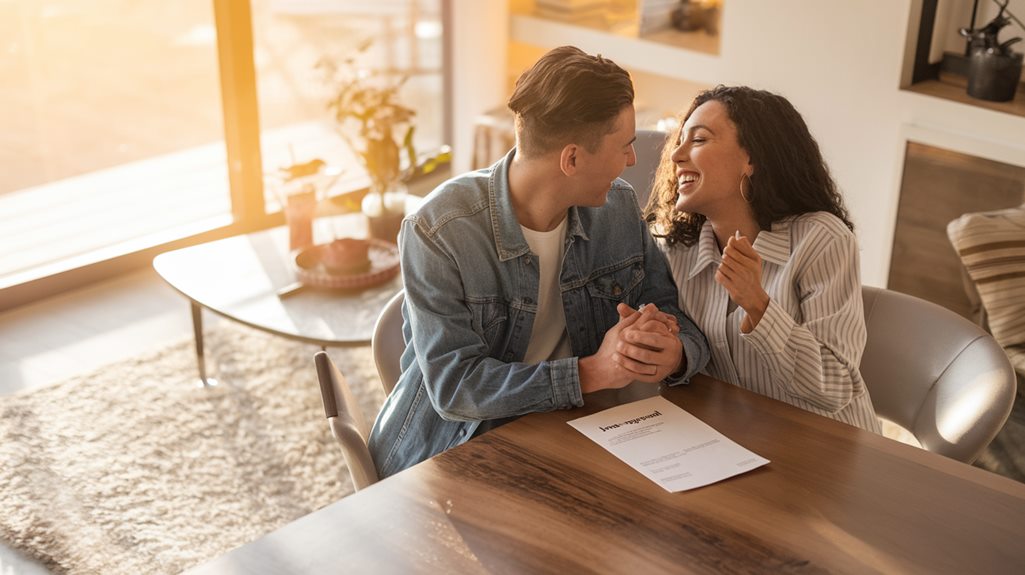
Getting pre-approved for a loan is an important step when you want to buy a home. It helps you understand how much money you can spend and shows sellers that you're serious. When you get pre-approved, it can help you stand out when other people are trying to buy the same home.
To start the process, you need to gather some important papers, like proof of how much money you make and where you work. This will help make your loan application easier.
Lenders will look at your financial history, especially your credit score, to see if you can get a loan and what the terms will be.
If you keep a good credit score, you might get lower interest rates. This can help you save money in the long run.
Define Your Housing Needs
When you're buying your first home, it's very important to think about what you really need. This means picking the best location, size, and features you want.
Think about how you live now, and also about the future. For example, will your family grow? Will you need a space to work from home?
Prioritize Key Home Features
The front door of your first house is like a special key to a brand-new adventure. Picking the right door means thinking about what's important to you.
First, think about where you want to live. Would you like to be in a busy city, a calm neighborhood, or a pretty countryside?
Next, think about what things you need to make your life better and feel happy in your new home. Here are some important things to think about:
- How close is the bus or train station?
- Are there good schools and doctors nearby?
- Are there parks where you can play or relax?
- Is there shopping and places to eat close by?
These things can help you feel good about your new home!
Consider Future Needs
When you start looking to buy your first house, think about what you need now and what you might need later. If you think you might want a bigger family someday, make sure the house has enough space. Also, think about how your life might change. Will you need more room for hobbies or a home office?
It's good to look at how easy it will be to sell your house later. The place you choose should be a smart choice for the future. Think about nearby parks, schools, and fun places to hang out. These things can make your neighborhood feel like home.
| What to Think About | What It Means |
|---|---|
| Future Family | Plan for more people in your home. |
| Lifestyle Changes | Make sure the house fits your future needs. |
| Community Amenities | Look for fun places close by. |
These ideas will help you find a home that works for you now and later!
Research Potential Neighborhoods
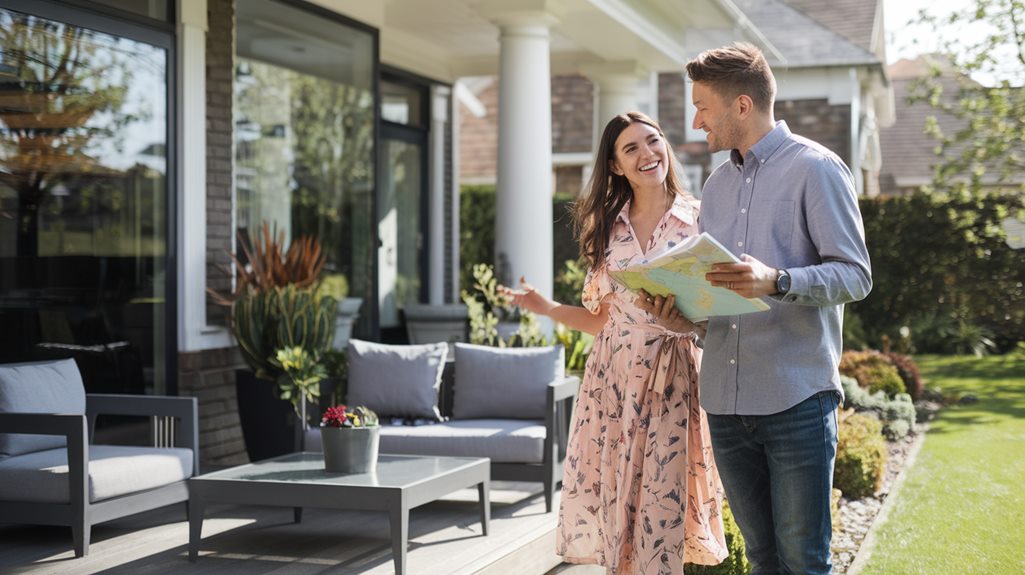
Before you start looking for a new home, it's important to check out the neighborhoods. This way, you can find a place where you feel happy and comfortable.
Here are some things to think about:
- Neighborhood fun: Look for parks, stores, and places to play. These make life more enjoyable.
- Schools nearby: Good schools can mean a better community and higher home values.
- Safety: Check crime rates to make sure you and your family will be safe.
- Getting around: Look at public transportation options and any new roads or buildings that might come soon. They can change how much your home is worth.
Also, pay attention to who lives around you. This helps you understand what the neighborhood is like.
Choose a place that fits your life and dreams. When you know what to look for, you'll be happier in your new home!
Hire a Qualified Real Estate Agent
When you decide to buy your first house, getting a good real estate agent can make things easier.
A helpful agent knows a lot about buying homes. They can help you understand everything and even get you a better price.
When you trust a smart agent, you can feel good about your choices and make the best investment.
Find Experienced Professionals
Buying a home can feel scary. But getting help from a good real estate agent can make it much easier. They'll help you understand everything and make smart choices.
It's also a good idea to have other experts with you, like real estate lawyers and home inspectors. These helpers can stop you from making mistakes that many first-time buyers make.
- Real Estate Agent: They help you find the right homes and talk to the sellers.
- Real Estate Lawyers: They check that all the important papers are correct.
- Home Inspectors: They look at the house to find any problems you can't see.
- Mortgage Brokers: They help you get a good loan for your new home.
Having this team by your side gives you the knowledge and support you need as you take this big step in your life.
Negotiate Better Deals
Negotiating is a special skill that can help you save a lot of money when you buy your first home. To get really good at it, find a friendly real estate agent who knows how to talk about prices and can help you. A good agent understands what houses are worth and can make sure you don't pay too much.
They can also help with closing costs, which means you could save even more money!
A great agent does more than just help you get a lower price. They know about the house's value and how much it might be worth later.
Attend Open Houses
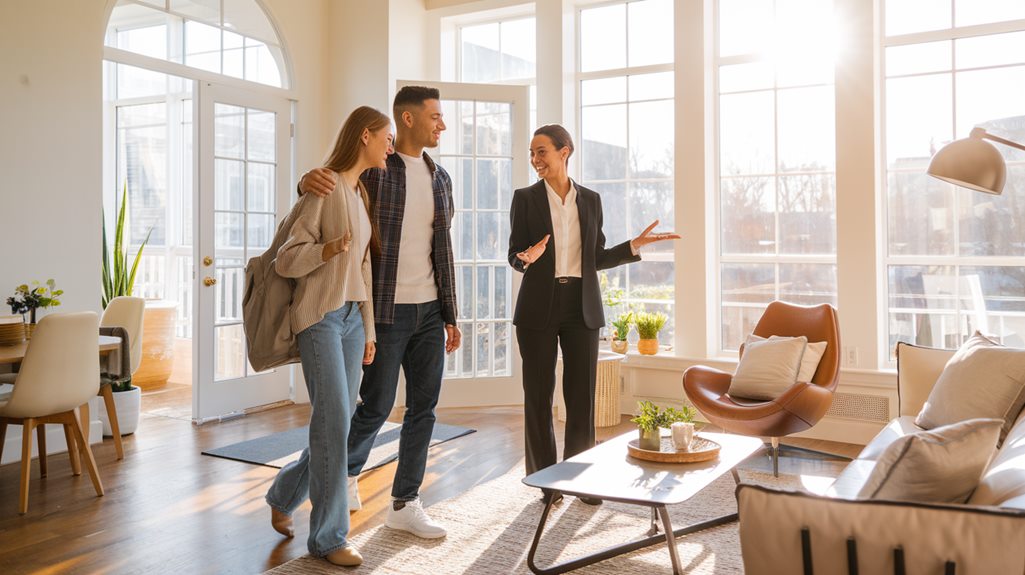
Going to open houses can be a fun part of looking for a new home! It helps you see what's out there and learn about the neighborhood.
Here are some simple tips to make the most of your visit:
- Be on time: This is nice and helps you get all the important info.
- Talk to the agent: Ask them questions to understand more about the house.
- Be polite: Don't go into areas that are off-limits. It's important to respect the space.
- Check out virtual tours: These can help you see more homes from your own home.
Enjoy exploring!
Conduct Thorough Inspections
Checking a home carefully is very important when you want to buy it. This helps you see if the house is really in good shape. Start with a simple checklist to find any problems. You might see issues like bad wiring, plumbing leaks, or cracks in the walls. These can cost a lot to fix later.
By finding and fixing these problems now, you help keep your money safe and make sure your new home is safe and cozy.
It's a good idea to get a professional inspector. They know what to look for and will check everything closely. After they finish, they'll give you a report showing what needs fixing.
This makes you feel good about your choice and helps you feel like you belong, knowing you've made a smart decision for your new home and neighborhood.
Make a Competitive Offer
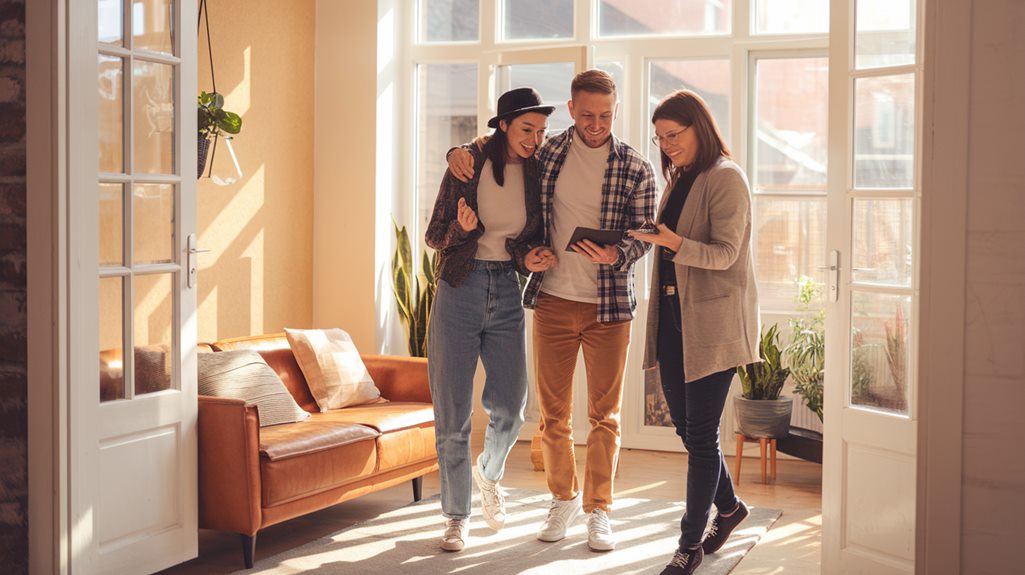
To make a good offer, you need to know what's happening in the market.
Look at what houses like the one you want have sold for recently. This will help you see how much competition there is.
Think about what features are really important to you.
Make sure your offer matches what's going on in the market and what you need.
Understand Market Trends
When you want to buy your first house, it's really important to know what's happening in the housing market. You need to look at how many houses are for sale and how many people want to buy them. This will help you understand if it's a good time to make an offer.
You should also pay attention to interest rates. These are the costs you pay when you borrow money to buy a house. If rates go up, it might be harder to afford the house you want.
Check out what houses in different neighborhoods are selling for. Some areas might be getting more popular, which can help you decide where to buy.
Also, look at the time of year. Sometimes, there are more houses for sale in spring and summer than in winter.
Think about these things:
- Houses for Sale: Keep an eye on what's available.
- Market Changes: Notice when prices go up or down.
- Interest Rates: See how they change your budget.
- Future Prices: Look for hints about how much homes might cost later.
Prioritize Key Features
When looking for a home, it's important to think about what really matters. Pay attention to energy efficiency and outdoor space. These things can make your home more comfortable and help it be worth more money later.
Energy-efficient homes save you money on bills and are great for the planet. Look for features like good insulation, energy-saving windows, and modern heating and cooling systems.
Outdoor space is also important. A big backyard or patio can be a fun place for family and friends to hang out. It helps you feel connected to your community.
Finalize the Paperwork
Buying your first house is super exciting! But it can also feel a bit scary, especially when it's time to finish all the important paperwork.
To help make this part easier, it's good to have a checklist of things to do. Keeping your papers neat will help you feel ready and happy in your new neighborhood.
Here are some important things to check:
- Look at your loan papers: Make sure everything looks right and matches what you expected.
- Check your title insurance: This helps protect you if someone says they own part of your house.
- Look at the closing costs: Make sure all the fees are correct and what you agreed on.
- Make sure all signatures are there: If any are missing, it could slow things down.
Getting these tasks done will help you feel great about your new home!

